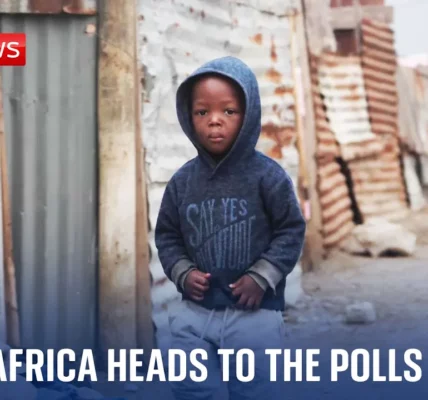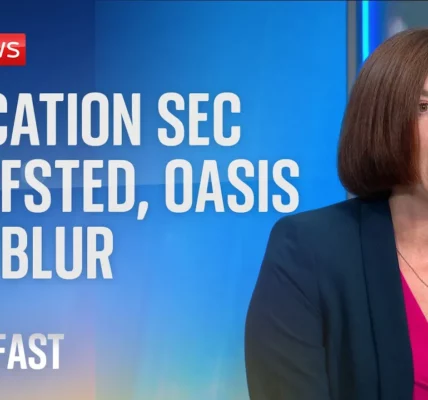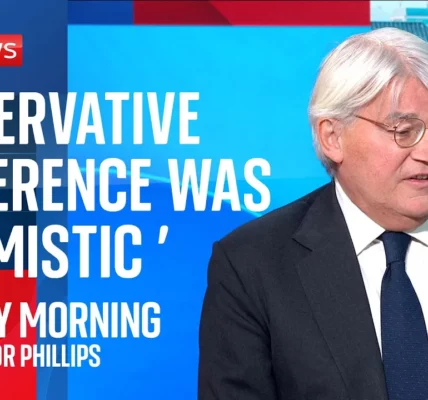The Press Preview: National Service Debate and Political Strategies

In this article, we delve into the latest political discussions in the UK, focusing on Rishi Sunak’s proposal for national service, the Conservative and Labour parties’ strategies, and the implications of tax policies on education and society.
Introduction
The political landscape in the UK is rapidly evolving, with significant proposals impacting the youth and the economy. Recently, Rishi Sunak, the Prime Minister, announced a plan to reintroduce national service for 18-year-olds, which has sparked intense debate among political commentators and the public. This article explores the key points raised during a recent discussion featuring journalist Christina Patterson and former Conservative adviser Anita Buting, shedding light on the potential implications of these proposals on society and the electorate.
The Proposal for National Service
Rishi Sunak’s announcement to bring back national service has been labeled a radical policy, aiming to instill a renewed sense of pride and purpose among young individuals in the UK. The proposal entails that all 18-year-olds would be required to participate in a year of national service, which may include military service or community service.
Reactions to the Proposal
Both Christina and Anita provided their insights regarding this policy:
- Christina expressed skepticism, suggesting that the proposal seems disconnected from the realities of young voters and is unlikely to sway their opinions.
- Anita, however, acknowledged the potential benefits of national service in engaging youth and providing them with essential skills, particularly in emerging fields like cyber defense.
Community Engagement and Skill Development
The discussion further highlighted the importance of community engagement. Many young people today feel isolated, especially after the COVID-19 pandemic. National service could offer valuable opportunities for social interaction and development:
- Engagement in community service can foster a sense of belonging.
- Learning new skills during service can enhance employability.
- Encouraging teamwork and leadership qualities.
Political Dynamics and Election Strategies
The conversation also delved into the broader political context surrounding these proposals. With elections approaching, both parties are trying to capture the attention of young voters, who historically have lower turnout rates.
Labour’s Counter Strategies
In response to the Conservatives’ plans, the Labour Party is advocating for voting rights to be extended to 16 and 17-year-olds. This push aims to engage younger demographics in the political process:
- Arguments were made that allowing younger citizens to vote could encourage political education in schools.
- There is a belief that involving youth in politics at an earlier age could lead to a more informed electorate in the future.
Concerns Over Economic Policies
Another significant point raised was the accusation from Labour’s shadow Chancellor, Rachel Reeves, claiming that the Conservatives are making £64 billion in unfunded spending commitments. This has raised concerns about fiscal responsibility and the potential impact on public services:
- Critics argue that the focus should be on sustainable economic policies rather than temporary election strategies.
- Discussion on the implications of tax cuts and their feasibility in the current economic climate.
Conclusion
The political discussions surrounding national service and youth engagement highlight the complexities of UK politics today. As Rishi Sunak’s proposals provoke debate, it is essential to consider the potential benefits and drawbacks, particularly regarding youth involvement in society. The upcoming elections will certainly test the effectiveness of these strategies, as both parties vie for the support of younger voters. As the conversation continues, it is crucial for voters to stay informed about these issues and engage in the democratic process.
For more insights and updates on UK politics, check out our related articles on youth engagement in politics and economic policies in the UK.
“`




